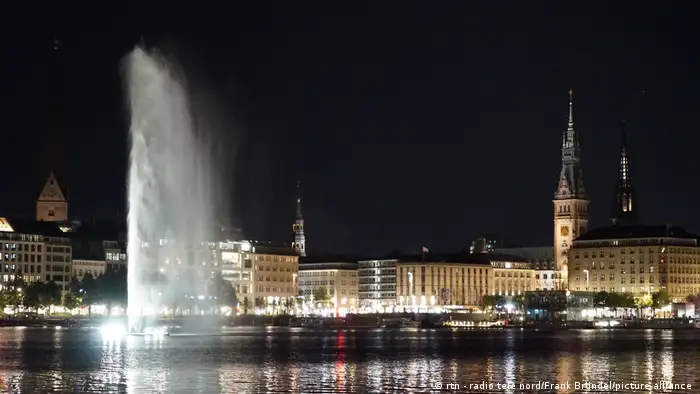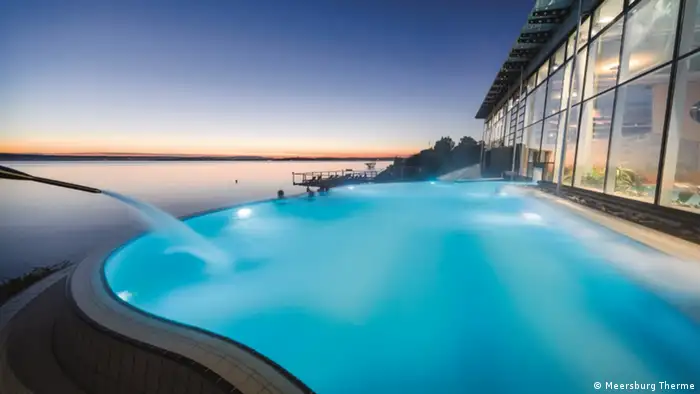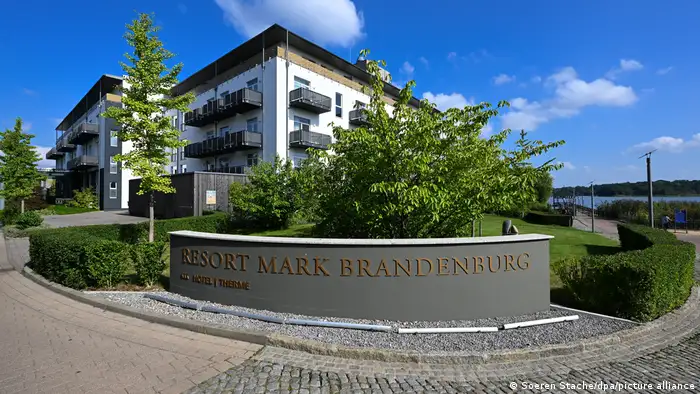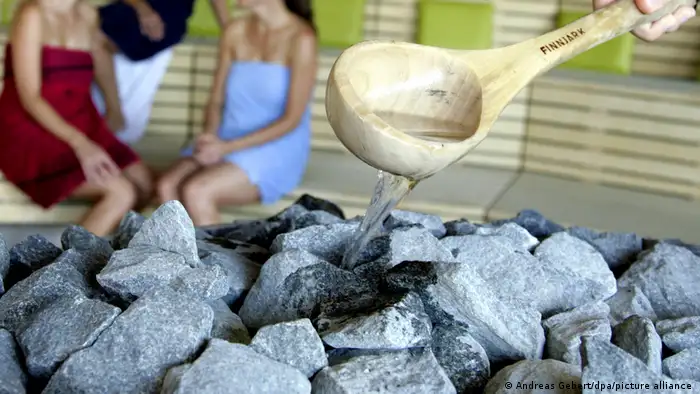Travel
Germany's energy crisis: How will the tourism industry get through the winter?
With gas and electricity prices soaring in Germany, changes are in store for hotels, restaurants, spas and museums this fall and winter. Here's what vacationers can expect.
Northeastern Germany's Resort Hotel Mark Brandenburg boasts numerous thermal baths, some of them reaching up to 32 degrees celsius (89°F), but heating them is becoming very expensive given the rapidly rising cost of energy. "Our electricity and heating expenses are rising dramatically," said hotel director Martin Wenzel. "We will have losses because we cannot pass on the rising costs to our hotel guests."
With the cost of energy skyrocketing, many businesses in the German hospitality sector face an uncertain future. Many companies could go out of business, said Patrick Rothkopf of Germany's Association of Hotels and Restaurants (DEHOGA). The hospitality sector, he adds, is especially hard hit by rising electricity, oil and gas costs. In addition, restaurateurs and hotels owners face the very real prospect of power shortages. "I therefore expect politicians to do everything in their power to minimize the pressure on these companies," said Rothkopf.
Public institutions turn down heating
So far, lawmakers have shied away from demanding that the hospitality industry cut back on its electricity consumption, or turn down the heating. The government's new energy saving rules do, however, stipulate that public institutions, such as museums, may be heated to no more than 19 degrees Celsius (66°F). They also demand that exterior lighting and illuminated advertising spaces must be switched off by 10 p.m. every night to conserve energy.

Hamburg authorities are saving energy by shutting down the majestic Alster Fountain two months earlier than usual
The consequences of the energy crisis are already becoming apparent at many of the country's leading tourist attractions. In Hamburg, authorities decided to turn off the iconic Alster Fountain two months early this year. The city of Cologne also stopped illuminating its famous cathedral. Likewise, Berlin authorities no longer light up the Reichstag, home to German's parliament, the Bundestag. The Baltic port city of Rostock has canceled its annual, week-long, city-wide light show.
Tourism industry representatives have also warned that rising energy bills could adversely impact this year's winter sports season.
Holidaymakers to foot the bill
Holidays will become more expensive, that much is clear. "Rising costs mean touristic services and restaurant visits will become pricier, says German Tourist Association spokeswomanHuberta Sasse, adding there is no avoiding this as businesses cannot operate at a loss. Finding the right balance between price hikes and cost-saving measures, she says, is therefore key. One quick and readily applicable method for cost-cutting could be to better manage the use of heating and warm water — many businesses have already undertaken such efforts to become more energy-efficient.
"Hotels are making considerable investments in energy-saving measures, running their business more efficiently, adjusting prices and optimizing their services as much as possible," said Tobias Warnecke, who heads the German Hotel Association (IHA). The hospitality sector also faces rising food and labor costs. Some restaurants have even resorted to reducing their opening hours.
Spa and sauna operators, in particular, will need to drastically reduce their energy consumption. Lutz Hertel of Germany's Spa Association said operators are deeply concerned as autumn and winter near, when spas are most frequented. Rising costs could lead to a "drop in guests, which will put businesses in serious financial trouble." That is why many are now working hard to reduce their energy consumption. One step could be reduced opening hours, or lowering temperatures in saunas and pools. "Though who wants to spend time in a lukewarm sauna?" he asked. Guests are unlikely to be pleased with limits on how much time they are allowed to spend at a spa either.
2 degrees less
Resort Hotel Mark Brandenburg has already moved ahead with cost-saving measures, said Martin Wenzel. The hotel's exterior lighting is now switched off at 10 p.m., and further measures are planned. One of the outside pools will be 2 degrees cooler. Wenzel does not want to close any of the pools or saunas, as this would disappoint guests and perhaps cause them to vacation elsewhere. "Our biggest fear is that spas will be told to shut down entirely," or that his resort will be cut off from district heating, he said.
This article was translated from German.
While you're here: Every Tuesday, DW editors round up what is happening in German politics and society. You can sign up here for the weekly email newsletter Berlin Briefing.
- Date 12.09.2022
- Author Jonas Martiny
- Feedback: Send us your feedback.
- Print Print this page
- Permalink https://p.dw.com/p/4GX6D
- Date 12.09.2022
- Author Jonas Martiny
- Send us your feedback.
- Print Print this page
- Permalink https://p.dw.com/p/4GX6D




